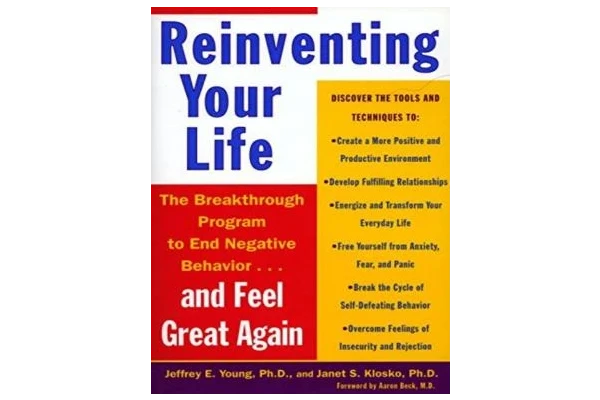
Two of America's leading psychologists, Jeffrey E. Young, Ph.D., and Janet S. Klosko, Ph.D., show readers how to free themselves from negative life patterns. Written with compassion as well as clinical insight, this thought-provoking book guides readers through the process of identifying "life traps." For example, "Do you put the needs of others before your own? Are you drawn into relationships with people who are self-centered, cold to you, misunderstand you, or use you? Do you feel inadequate compared to people around you?" Followed by an engaging discussion that makes use of case studies, this book can help people change their lives by stopping the cycle of self-destruction.
**
From Publishers Weekly
Several of the most painful petards upon which people become hoisted during an unhappy childhood are neatly dispatched here by two cognitive therapists, who attack 11 common "lifetraps"--destructive patterns that underlie a variety of emotional problems. Young, director of New York City's Cognitive Therapy Center and a faculty member of the Columbia University Department of Psychiatry, and Klosko, co-director of the Cognitive Therapy Center of Long Island, ably demonstrate how to deal with issues of abandonment, dependence, trust, social rejection, emotional deprivation, failure and vulnerability. They provide meaningful case histories, perceptive descriptions, diagnostic tests and a variety of nugget-sized, easily understood lists detailing the causes, danger signs and effects of negative impulses and actions, as well as ways to short-circuit them.
Copyright 1993 Reed Business Information, Inc.
From Library Journal
The authors, both cognitive psychotherapists, identify 11 common "lifetraps," which they define as repetitive, destructive behavior patterns associated with a negative self-image. Using illustrations from case studies, the authors describe each lifetrap, discuss its origins in childhood experience, and provide a questionnaire for self-assesment. They then offer a program for change using techniques ranging from experiential (getting in touch with your inner child) to cognitive (writing a "case" against your lifetrap) and behavioral (identifying specific behaviors to be changed). Recommended for popular psychology collections.
- Lucille Boone, San Jose P.L., Cal.
Copyright 1993 Reed Business Information, Inc.
Year:1994
Publisher:Plume
Language:English
ISBN 10:0452272041
ISBN 13:9780452272040
File:PDF, 1.75 MB
دیدگاه خود را ثبت کنید